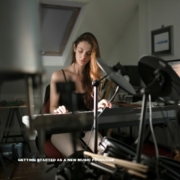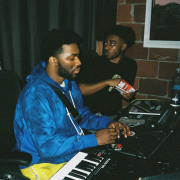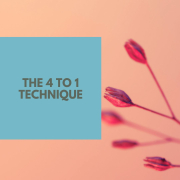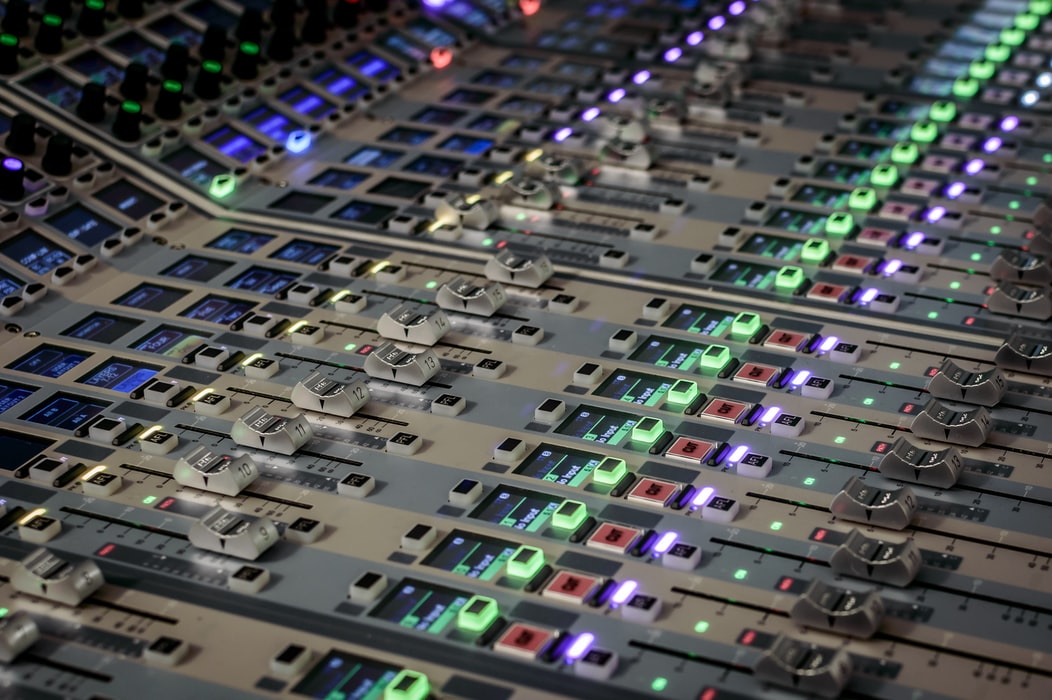Definition Of Done In Music Production
This seems like a common scenario which involves one’s doubt about the status of their song, mainly to know if it’s done. You may be that person. You’ll be feeling your song is finished, bounce it, listen to it in the car or with friends and then you feel that wave of discomfort overwhelmingly creeping on you because you’re noticing all the mistakes and things that aren’t right. Let me reassure you that you’re not alone and this is more common than you think.
The concept of DoD (Definition of Done) is something I borrowed from the Agile process, that is typical of coders dealing with a scrum master, mainly in project management. In Agile, there are sprints where there’s a goal set, then tasks/actions are taken to reach a certain point. They’ll agree that the task is done when a certain number of criteria are met. This could apply to basically any projects possible, from weeding out your garden to cooking a dinner.
In a world that is not from the digital realm, with 1’s and zero’s, the concept of done can be a bit tricky as per the one who sets a DoD, the level of mastery might change. In other words, you might be agreeing that my DoD on a song will be very different from someone’s new to music. And that’s ok.
There are a few concepts that we can look into that will help you let go of whatever that inner voice of doubt is whispering you about.
A song is never really done
This one hurts, yeah? But I tell you, there will never be a field where uncertainty can hit you the most than music, mainly because things are abstract in the world of sounds. Your main enemy is really yourself and your self-judgment towards what you do will change everyday, sometimes it will completely change within a day itself. You’ll never really know honestly but there are a few things that can help you though. I’m not referring to you to just say to let go of things here. I’m more interested in knowing how much imperfection I can live with and how much a random person will notice. This is where it matters.
There are a number of things we don’t know and there are also a gray area of things we don’t even know that we don’t know of. Your song is in between there and your future self of in 10 years ahead, will have a more compassionate understanding that this song has been done within the technical limitation of that moment. And it’s really ok, trust me.
References will reveal truth
This is where many people fail. You can’t know you’re done if you don’t have a model. So, for instance, you might cook a pizza but honestly, if you never ate one (I would pity you!), it’s sort of hard to compare it with anything. I had some of the best pizza of my life in New York and that taste was forged as my favorite. Whenever I have a pizza now, from the airport to a little restaurant, my mind compares it to that one I had in NY. It’s the same with sound. When I do mastering or mixing, I have models of other projects and know exactly how I want it to sound like.
So for arrangements, what’s easy is to simply load up a song in Ableton or your DAW and just use it as a cookie cutter. I encourage people to do critical listening, counting how many sounds they hear in the reference and compare it to theirs. So many times, people have way too much happening or maybe, there’s one less – and that helps much. Same for levels, in the mix.
But I want to sound like myself… I hear you say. Well, sure, you’ll get there but you need to get your skills of finishing songs to be solid first.
Again, most of the time someone feels they can’t tell if they’re done or not, I’ll first ask “compared to what?” Mostly because if we’re not comparing it with anything, we just feel arbitrary in the decision and this is why you’ll feel like a yes or nay, depending on your mood and insecurity level.
Lastly, be careful about comparing yourself to a master file. You might be setting yourself up for failure if you are comparing yourself to a song that has been made by a musician that has more experience than you, that has released a lot of music and also, if the song is mastered and yours is not, well, it will not be even. Checking for volumes (eg. snare vs kick), as well as other details is more of a fair fight.
Feedback, ask for it
There are multiple ways to ask for feedback and many places to do it as well. You can get some for free in my facebook group (when I’m free) or through my Patreon program. You can ask other producers, even if they’re not that experienced but be sure they listen to it in the right mind set, or context (some listen on their phones, no!).
Take pauses and distance
This has been said many times on this blog but studio sessions beyond an hour long are a road to trick yourself about whatever you’re doing. You might think it’s amazing or shit, perhaps it’s neither because your judgment, honestly, quits after 1h of work. It’s called decision-fatigue and you might have experienced it already.
I make sessions of 1h max, but preferably about 20 minutes at a time, with pauses. I let my songs sleep for weeks or months. When I reopen them, I want to have forgot about them enough to be able to feel I’m listening to someone else’s song and we all know how good of a critique we are when it’s not our own. I create projects and often rework them 3-4 years later. It’s really fun and eventually when you create these sessions, you’ll have a bunch and will always rediscover sleeping bombs.
When I make a really good idea and feel it would be really good, I usually stop right there and WON’T WORK ON IT! I will let it sleep for months. Mostly because what I think is an amazing idea might not be one and if it is, I want my future self to handle it. Between now and then, i will have thought about it, cumulated new ideas, gained new plugins and experience so that when I open that sleeping gem, I have all the goods to turn it into what I want. Sometimes I am working on a great song and might be missing something so I could also grab that idea and bring it into a almost finished bomb, which is for sure going to be beyong what I expected.
Decide when you feel good
This one might be confusing or so obvious you might feel caught off guard. Think of the last time you saw one of your friends in their facebook feed saying they quit their DJ career or something they like… well, they’re basically taking a decision when feeling bad. If you decide to quit, you’ve been accumulating frustration. This is the same about your projects. Like the previous suggestion suggested, taking pauses and waiting before making a decision is quite healthy and let’s you wait for when you feel actually good about your song. Especially if you feel like half of the time you listen to it, it’s shit. When in doubt most of the time, pauses are crucial. If you’re 90% of the time feeling something needs a correction, then do it.
How to set your DoD:
Now that we have covered strategies to find out if your song is done, let’s look into setting your own Definition of Done.
1- Pick a reference (or a few), as discussed previously. This is to set the tone, aesthetic, direction. Decide and commit to what this song will be (a ballad? Ambient drone? Dance floor bomb?) then find something you know is solid as your cookie cutter. You’ll refer to that.
2- Analyze your reference and know what are the minimum requirements. Understand in advance what you can’t do from that one and what you can control. Ask for help, check tutorials and do as much as you can.
3- Decide in advance what you will do and what you can’t. If you know yourself and parts where things are a bit more difficult, you can always ask for help. There’s this misconception that one should be able to do everything themselves but this is counter-productive. Do you want to be average at all the different sides of production? You ideally want to be having fun first and get better but you can also ask for help: friends, other producers, myself.
4- Give yourself a plan. You can set yourself a deadline but also zones of no actions to be taken as well.
5- Define some points of what would be some targets of done. This can be a scope of how much mix you want to do (ex. I will spend 2h max in the mix). Or “I want my drums to be very punchy” as something to reach. Perhaps your song will never be as punchy as what you dream but when you ask for feedback to someone who has never heard it, you can ask if they think it sounds punchy. Asking general and vague feedback will bring vague answers.
6- Test in context. Play your track in a DJ mix or ask a DJ friend to play it. See what happens, how it sounds compared to other tracks. This alone can reveal many flaws and strengths. I also like to bring a reference in my DAW and play my song with another one, mix them so it is not a mess, so I can see with the arrangements if it works.
Conclusion
This approach has proven many times with clients that it works. The more prepared you are, the better. Do you need to always do that? No. I mostly do it when I have periods where I struggle with inspiration or when I’m booked for a bigger contract. But it’s good to put it in practice here and there so that when you’re faced with challenges, you don’t start this with no warnings. It could actually backfire.
Photo by Brett Jordan on Unsplash












Leave a Reply
Want to join the discussion?Feel free to contribute!